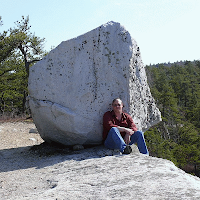This is a blended course, meaning there is an online component, as well as meeting face-to-face on Thursday evenings, 7:00 - 10:00 pm from September 9 - November 4 on the Ulster County Community College campus in Stone Ridge. Here's the official course description:
This night course is a hands-on introduction to observing the night sky, how to locate these objects using celestial coordinate systems, and how to utilize the Internet and computer programs to obtain astronomical information. Most of the laboratory time will be spent outdoors learning the names and locations of stars and constellations and utilizing the department's telescopes to observe and study the moon, planets, deep sky objects, and other astronomical objects which might be visible. The course will include observing trips during class time to local areas away from the light pollution on campus.It's not an academic astronomy course (we have AST-101 Astronomy of Stars & Galaxies for that). You will learn what Messier objects are, how a planetary nebula forms, etc., but it's primarily a hands-on course teaching you how to look at the night sky and how to use a telescope. We don't have a planetarium on campus although I do arrange to go visit one during the course time.
The online component of the course will teach you how to use the Internet to obtain astronomical information, how to download a free planetarium program allowing you to see what's up in the night sky for any night and/or location on Earth, and how to select objects to view in the night sky.
One of the scopes you'll learn to use!
The face-to-face component of the course will introduce you to the constellations and how to find your way around the sky and then allow you to use a telescope (we start with 6" Dobsonian reflectors but have other scopes available). We'll be observing the satellites (naked eye), the Moon, whatever planets are out, and various celestial objects like Andromeda, the Ring Nebula, Albireo, Hercules Cluster, and others.
I always have great feedback from students who take this course telling me they had a great time and learned a lot. If you want to know more, feel free to contact me.




No comments:
Post a Comment